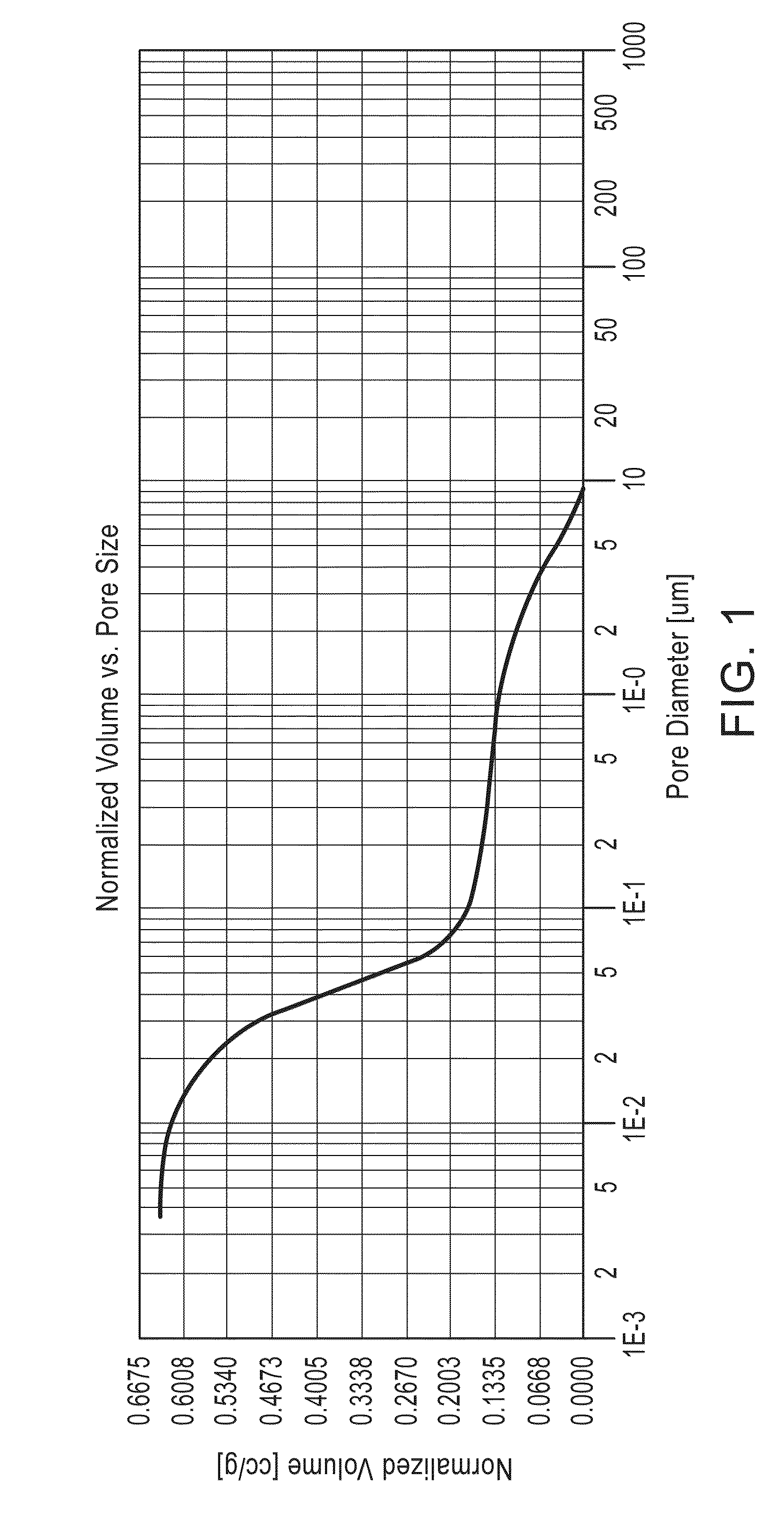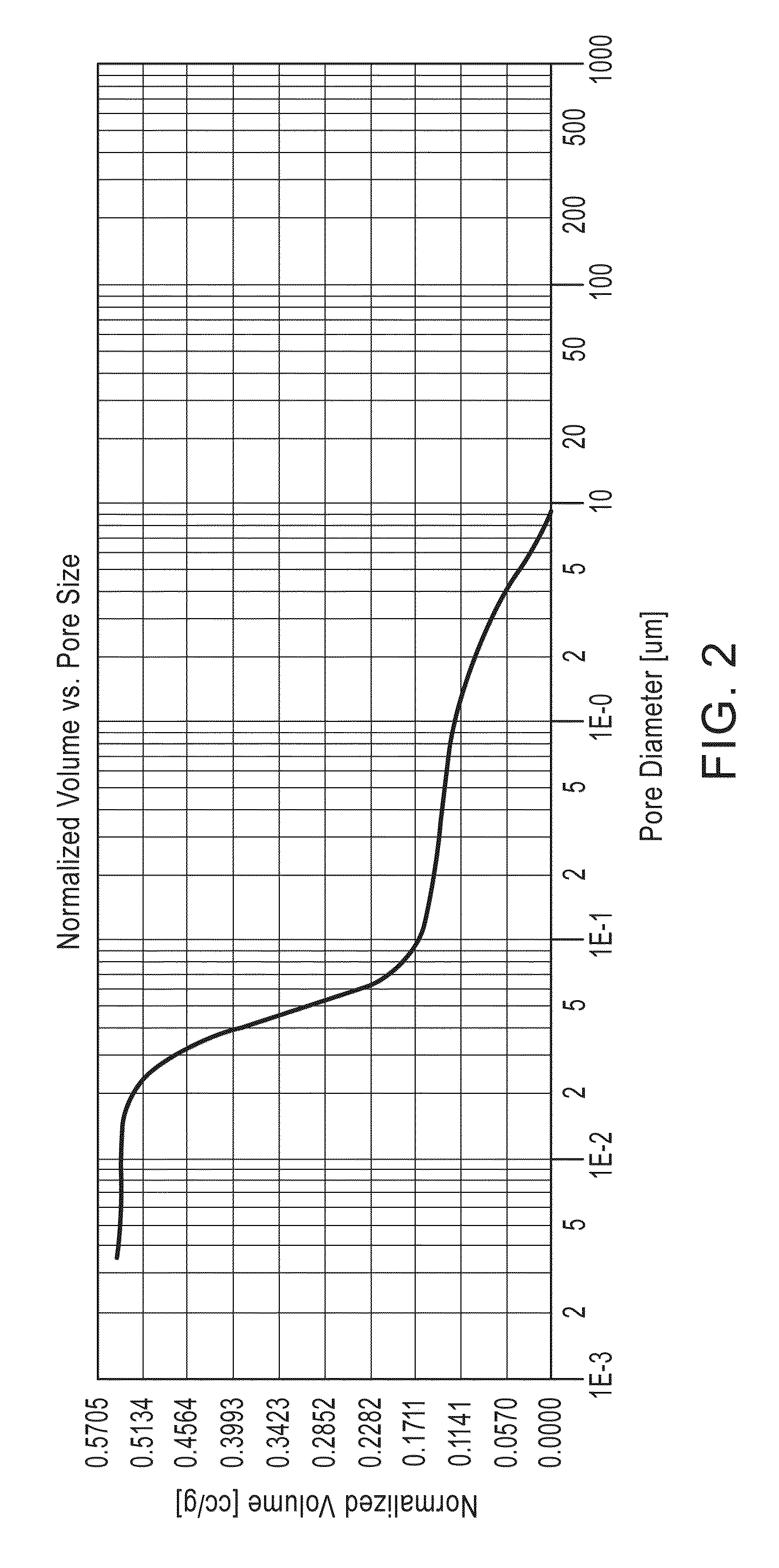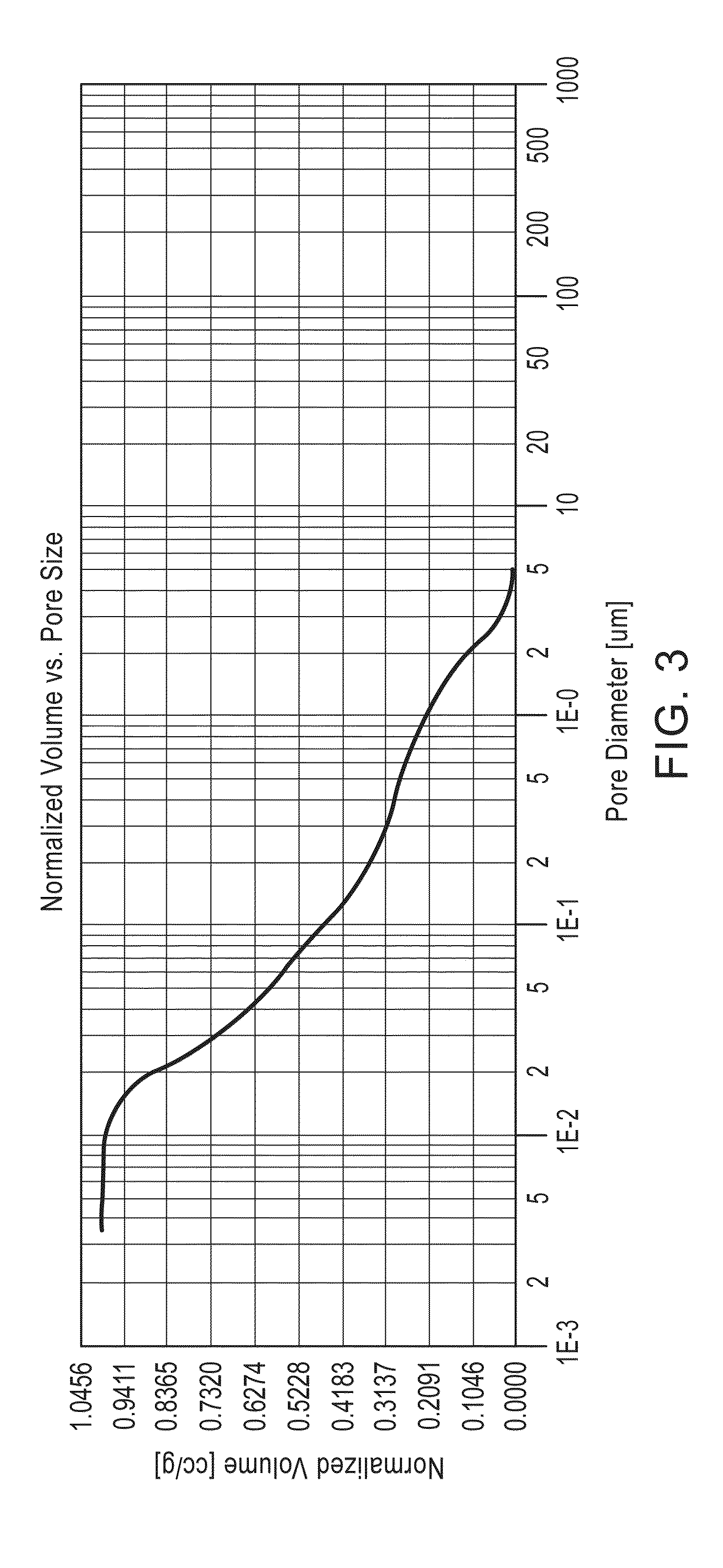Cerium-zirconium based compound oxide and production method thereof
a technology of compound oxide and zirconium zirconium, which is applied in the direction of physical/chemical process catalysts, metal/metal-oxide/metal-hydroxide catalysts, etc., can solve the problems of compound oxide disclosed in patent documents 1 and 2 that do not have satisfactory high temperature thermal stability, and achieve excellent thermal stability and maintain a large volume of pores
- Summary
- Abstract
- Description
- Claims
- Application Information
AI Technical Summary
Benefits of technology
Problems solved by technology
Method used
Image
Examples
example 1
[0106]To 400 g of trivalent cerium nitrate solution (concentration calculated as CeO2: 10%), 8 g of 35% hydrogen peroxide solution was added to obtain a cerium solution.
[0107]The content of tetravalent cerium per total cerium was 21% (the value calculated based on the analysis results of cerium oxide powder after the addition of hydrogen peroxide, neutralization, and baking the hydroxide).
[0108]Thereafter, 130 g (50 g calculated as ZrO2) of zirconium oxychloride octahydrate was dissolved in ion-exchanged water, and 35% hydrochloric acid and ion-exchanged water were added in such a manner that its acidic concentration became 0.67 N, and the ZrO2 concentration became 4 w / v %. The resulting solution was heated to 2×105 Pa and 120° C. When the temperature reached 120° C., 740 g of 5% sodium sulfate was added thereto; the solution was maintained at that temperature for 15 minutes, after which it was left to stand until reaching room temperature. Thus, basic zirconium sulfate slurry was o...
example 2
[0113]To 600 g of trivalent cerium nitrate solution (concentration calculated as CeO2: 10%), 12 g of 35% hydrogen peroxide solution was added to obtain a cerium solution.
[0114]The tetravalent cerium content per total cerium was 24% (the value calculated based on the analysis results of cerium oxide powder after the addition of hydrogen peroxide, neutralization, and baking the hydroxide).
[0115]To 600 g of the basic zirconium sulfate slurry (concentration calculated as ZrO2: 5%) obtained in Example 1 were added the above-obtained cerium solution and 100 g of a lanthanum nitrate solution (concentration calculated as La2O3: 10%), followed by the addition of 500 g of 25% sodium hydroxide. Next, decantation was repeated until the impurities were removed. Thereafter, the resulting slurry was subjected to filtration and washed to form hydroxide. The hydroxide was subjected to baking at 600° C. for 5 hours to obtain an oxide. The resulting oxide was ground in a mortar until the particle diam...
PUM
| Property | Measurement | Unit |
|---|---|---|
| diameter | aaaaa | aaaaa |
| diameter | aaaaa | aaaaa |
| specific surface area | aaaaa | aaaaa |
Abstract
Description
Claims
Application Information
 Login to View More
Login to View More - R&D
- Intellectual Property
- Life Sciences
- Materials
- Tech Scout
- Unparalleled Data Quality
- Higher Quality Content
- 60% Fewer Hallucinations
Browse by: Latest US Patents, China's latest patents, Technical Efficacy Thesaurus, Application Domain, Technology Topic, Popular Technical Reports.
© 2025 PatSnap. All rights reserved.Legal|Privacy policy|Modern Slavery Act Transparency Statement|Sitemap|About US| Contact US: help@patsnap.com



